混合甲酚,Cresol mixed isomers,99%
产品编号:Sigma-03869| CAS NO:1319-77-3| MDL NO:MFCD00151099| 分子式:C7H8O| 分子量:108.14
Cresol是一种有机化合物,是芳香族有机化合物广泛存在的天然及合成基团。
本网站销售的所有产品仅用于工业应用或者科学研究等非医疗目的,不可用于人类或动物的临床诊断或者治疗,非药用,非食用,
| 产品名称 | 混合甲酚 | ||||||||||||||||
|---|---|---|---|---|---|---|---|---|---|---|---|---|---|---|---|---|---|
| 英文名称 | Cresol mixed isomers | ||||||||||||||||
| CAS编号 | 1319-77-3 | ||||||||||||||||
| 产品描述 | Cresol是一种有机化合物,是芳香族有机化合物广泛存在的天然及合成基团。 | ||||||||||||||||
| 产品熔点 | -1--2°C | ||||||||||||||||
| 产品沸点 | 191.0±0.0 °C at 760 mmHg | ||||||||||||||||
| 产品密度 | 1.0±0.1 g/cm3 | ||||||||||||||||
| 产品闪点 | 81.1±0.0 °C | ||||||||||||||||
| 精确质量 | 108.057518 | ||||||||||||||||
| PSA | 60.69000 | ||||||||||||||||
| LogP | 1.94 | ||||||||||||||||
| 外观性状 | 淡黄色至淡粉红色液体 | ||||||||||||||||
| 蒸气压 | 0.4±0.3 mmHg at 25°C | ||||||||||||||||
| 折射率 | 1.546 | ||||||||||||||||
| 溶解性 | 1.932 g/100 mL | ||||||||||||||||
| 溶解性数据 | In Vitro:
DMSO : ≥ 72 mg/mL (665.80 mM) * "≥" means soluble, but saturation unknown. 配制储备液
*
请根据产品在不同溶剂中的溶解度选择合适的溶剂配制储备液;一旦配成溶液,请分装保存,避免反复冻融造成的产品失效。 | ||||||||||||||||
| 稳定性 | 1.为邻甲酚、间甲酚和对甲酚三种异构体的混合物。化学性质和苯酚相似,有弱酸性,与氢氧化钠作用生成可溶性的钠盐,但不与碳酸钠作用。甲酚钠盐与硫酸二甲酯一类的烷基化剂反应,生成酚醚。与醛类反应得到合成树脂。催化加氢生成甲基环己醇。在温和条件下,甲酚即可进行硝化、卤化、烷基化和磺化反应。甲酚容易氧化,与光和空气接触颜色即变深,生成醌类及其他复杂的化合物。 2.甲酚的异构体中,对甲酚熔点最高,邻甲酚最易挥发。甲酚能与有机碱、有机酸、无机酸、离子等形成各种分子复合物。对金属有腐蚀性。 | ||||||||||||||||
| 储存条件 | 1.保持贮藏器密封、储存在阴凉、干燥的地方,确保工作间有良好的通风或排气装置。 2.可用镀镍钢、不锈钢或玻璃衬里容器密封阴凉处贮存。 |
相关文档
化学品安全说明书(MSDS)
下载MSDS质检证书(COA)
相关产品
| 符号 |
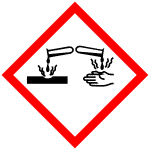
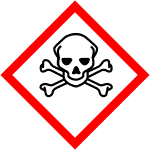
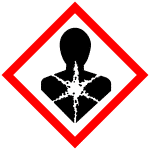
GHS05, GHS06, GHS08 |
|---|---|
| 信号词 | Danger |
| 危害声明 | H301 + H311-H314-H341-H412 |
| 警示性声明 | P201-P280-P301 + P310 + P330-P303 + P361 + P353-P304 + P340 + P310-P305 + P351 + P338 |
| 个人防护装备 | Faceshields;full-face respirator (US);Gloves;Goggles;multi-purpose combination respirator cartridge (US);type ABEK (EN14387) respirator filter |
| 危害码 (欧洲) | T:Toxic |
| 风险声明 (欧洲) | R20;R24/25;R34;R52/53;R68 |
| 安全声明 (欧洲) | S26-S36/37/39-S45-S61 |
| 危险品运输编码 | UN 2076 6.1/PG 2 |
| WGK德国 | 1 |
| RTECS号 | GO5950000 |
| 包装等级 | II |
| 危险类别 | 6.1(a) |
| 海关编码 | 2707991000 |
Synonym: Section 2 - COMPOSITION, INFORMATION ON INGREDIENTS
Risk Phrases: 34 24/25 Section 3 - HAZARDS IDENTIFICATION EMERGENCY OVERVIEW
Causes burns. Toxic in contact with skin and if swallowed.Toxic.Corrosive. Potential Health Effects Eye: Causes eye burns. May result in corneal injury. Skin: Harmful if absorbed through the skin. Causes skin burns. Prolonged and/or repeated contact may cause irritation and/or dermatitis. Ingestion: Symptoms may include: headache, excitement, fatigue, nausea, vomiting, stupor, and coma. Causes gastrointestinal tract burns. Inhalation: May cause respiratory tract irritation. Chronic: Not available. Section 4 - FIRST AID MEASURES Eyes: Immediately flush eyes with plenty of water for at least 15 minutes, occasionally lifting the upper and lower eyelids. Get medical aid immediately. Skin: Get medical aid immediately. Immediately flush skin with plenty of water for at least 15 minutes while removing contaminated clothing and shoes. Ingestion: If victim is conscious and alert, give 2-4 cupfuls of milk or water. Never give anything by mouth to an unconscious person. Get medical aid immediately. Inhalation: Not available. Notes to Physician: Section 5 - FIRE FIGHTING MEASURES General Information: As in any fire, wear a self-contained breathing apparatus in pressure-demand, MSHA/NIOSH (approved or equivalent), and full protective gear. Substance is nonflammable. Extinguishing Media: Substance is nonflammable; use agent most appropriate to extinguish surrounding fire. Section 6 - ACCIDENTAL RELEASE MEASURES General Information: Use proper personal protective equipment as indicated in Section 8. Spills/Leaks: Absorb spill with inert material (e.g. vermiculite, sand or earth), then place in suitable container. Wash area with soap and water. Provide ventilation. Section 7 - HANDLING and STORAGE Handling: Wash thoroughly after handling. Do not get in eyes, on skin, or on clothing. Keep container tightly closed. Do not ingest or inhale. Use with adequate ventilation. Storage: Keep container closed when not in use. Store in a cool, dry, well-ventilated area away from incompatible substances. Section 8 - EXPOSURE CONTROLS, PERSONAL PROTECTION Engineering Controls: Use adequate general or local exhaust ventilation to keep airborne concentrations below the permissible exposure limits. Exposure Limits CAS# 1319-77-3: United States OSHA: 5 ppm TWA; 22 mg/m3 TWA Belgium - TWA: 5 ppm VLE; 22 mg/m3 VLE France - VME: 5 ppm VME; 22 mg/m3 VME Germany: 5 ppm TWA; 22 mg/m3 TWA Germany: Skin absorber Japan: 5 ppm OEL; 22 mg/m3 OEL Malaysia: 5 ppm TWA; 22 mg/m3 TWA Russia: 0.5 mg/m3 TWA Spain: 5 ppm VLA-ED; 22 mg/m3 VLA-ED CAS# 7732-18-5: Personal Protective Equipment Eyes: Wear appropriate protective eyeglasses or chemical safety goggles as described by OSHA's eye and face protection regulations in 29 CFR 1910.133 or European Standard EN166. Skin: Wear appropriate protective gloves to prevent skin exposure. Clothing: Wear appropriate protective clothing to prevent skin exposure. Respirators: Follow the OSHA respirator regulations found in 29 CFR 1910.134 or European Standard EN 149. Use a NIOSH/MSHA or European Standard EN 149 approved respirator if exposure limits are exceeded or if irritation or other symptoms are experienced. Section 9 - PHYSICAL AND CHEMICAL PROPERTIES Physical State: Aerosol Color: Not available. Odor: Not available. pH: Not available. Vapor Pressure: Not available. Viscosity: Not available. Boiling Point: Not available. Freezing/Melting Point: Not available. Autoignition Temperature: Not available. Flash Point: Not available. Explosion Limits, lower: Not available. Explosion Limits, upper: Not available. Decomposition Temperature: Solubility in water: Specific Gravity/Density: Molecular Formula: Molecular Weight: Section 10 - STABILITY AND REACTIVITY Chemical Stability: Stable. Conditions to Avoid: Incompatible materials. Incompatibilities with Other Materials: Cresols are slightly explosive in vapor form. They reacy vigorously with oxidizing materials. They react violently with nitric acid, oleum or chlorosulfonic acid. Hazardous Decomposition Products: Carbon monoxide, irritating and toxic fumes and gases, carbon dioxide. Hazardous Polymerization: Has not been reported Section 11 - TOXICOLOGICAL INFORMATION RTECS#: CAS# 1319-77-3: GO5950000 CAS# 7732-18-5: ZC0110000 LD50/LC50: CAS# 1319-77-3: Oral, mouse: LD50 = 760 mg/kg; Oral, mouse: LD50 = 860 mg/kg; Oral, rat: LD50 = 1454 mg/kg; Skin, rabbit: LD50 = 2 gm/kg; Skin, rabbit: LD50 = 200 mg/kg. CAS# 7732-18-5: Oral, rat: LD50 = >90 mL/kg. Carcinogenicity: Cresols - Not listed by ACGIH, IARC, or NTP. Water - Not listed by ACGIH, IARC, or NTP. Other: See actual entry in RTECS for complete information. Section 12 - ECOLOGICAL INFORMATION Section 13 - DISPOSAL CONSIDERATIONS Products which are considered hazardous for supply are classified as Special Waste and the disposal of such chemicals is covered by regulations which may vary according to location. Contact a specialist disposal company or the local waste regulator for advice. Empty containers must be decontaminated before returning for recycling. Section 14 - TRANSPORT INFORMATION IATA Shipping Name: DISINFECTANT, LIQUID, TOXIC, NOS Hazard Class: 6.1 UN Number: 3142 Packing Group: II IMO Shipping Name: DISINFECTANT, LIQUID, TOXIC, NOS Hazard Class: 6.1 UN Number: 3142 Packing Group: II RID/ADR Shipping Name: DISINFECTANT, LIQUID, TOXIC, NOS Hazard Class: 6.1 UN Number: 3142 Packing group: II USA RQ: CAS# 1319-77-3: 100 lb final RQ; 45.4 kg final RQ Section 15 - REGULATORY INFORMATION European/International Regulations European Labeling in Accordance with EC Directives Hazard Symbols: T C Risk Phrases: R 24/25 Toxic in contact with skin and if swallowed. R 34 Causes burns. Safety Phrases: S 26 In case of contact with eyes, rinse immediately with plenty of water and seek medical advice. S 28 After contact with skin, wash immediately with... S 36/37/39 Wear suitable protective clothing, gloves and eye/face protection. S 45 In case of accident or if you feel unwell, seek medical advice immediately (show the label where possible). WGK (Water Danger/Protection) CAS# 1319-77-3: No information available. CAS# 7732-18-5: No information available. Canada CAS# 1319-77-3 is listed on Canada's DSL List. CAS# 7732-18-5 is listed on Canada's DSL List. CAS# 1319-77-3 is listed on Canada's Ingredient Disclosure List. CAS# 7732-18-5 is not listed on Canada's Ingredient Disclosure List. US FEDERAL TSCA CAS# 1319-77-3 is listed on the TSCA inventory. CAS# 7732-18-5 is listed on the TSCA inventory. SECTION 16 - ADDITIONAL INFORMATION N/A |

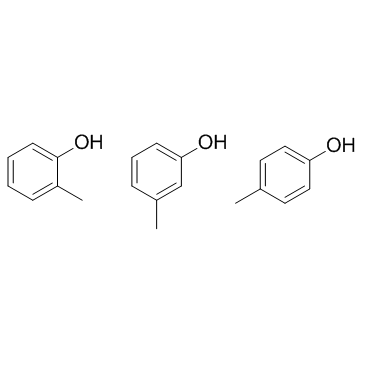


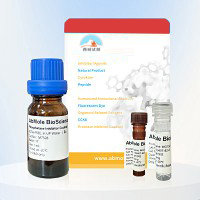





 浙公网安备 33010802013016号
浙公网安备 33010802013016号